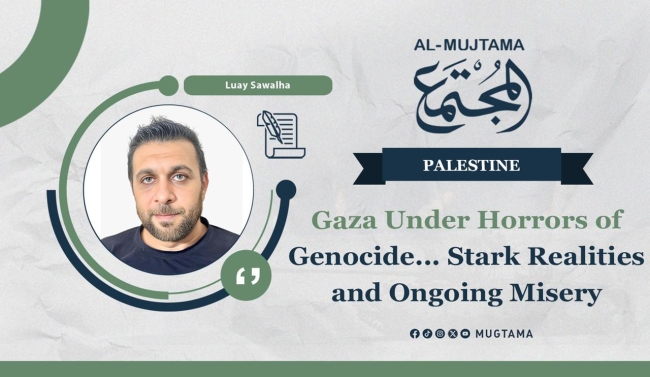Gaza Under Horrors of Genocide... Stark Realities and Ongoing Misery Featured
For over a year, the people of the Gaza Strip have been suffering from a genocide war that exceeds all humanitarian limits. The alarming numbers reflect the daily suffering experienced by people in this coastal strip, where more than 42,000 Palestinians have been martyred, including around 12,000 children and 5,500 women.
Additionally, more than 100,000 people have been injured, many of them suffering from serious injuries that threaten their lives. Under these harsh conditions, reports indicate that more than 10,000 people are still missing, adding to the suffering of families searching for their loved ones amidst the lack of information.
The war has also led to the destruction of a large part of the infrastructure in Gaza, with an estimated 85% of destruction, including civilian facilities such as houses, schools, and hospitals. More than 250,000 homes have been completely or partially destroyed, with the numbers increasing every hour, forcing many families to live in inhumane conditions.
This destruction is seen as part of a systematic displacement plan aimed at creating a reality that forces residents to leave their land. In this context, hospitals, which were already suffering from a lack of resources, are unable to meet the needs of patients, with reports indicating a loss of more than 50% of essential healthcare services.
In addition to physical suffering, Palestinian prisoners in occupation prisons suffer from harsh detention conditions, with more than 10,500 detainees, including women and children. Human rights reports indicate that many of them have been subjected to psychological and physical torture, which is a blatant violation of human rights, making their suffering part of a broader tragedy.
The tragedy does not stop at physical violence but extends to include economic and social dimensions. Gaza is suffering from an unprecedented rise in unemployment rates, reaching 75%, which exacerbates the difficulty of living. The ongoing Israeli siege has led to the deterioration of the economic situation, with estimates indicating that 95% of Gazans are in need of humanitarian assistance.
More than 2.1 million people are at risk of food insecurity, and according to United Nations reports, around 80% of families cannot access sufficient food, reflecting the scale of the humanitarian disaster experienced by the Palestinian people in Gaza.
Despite all attempts to displace and destroy their lives, the Palestinian people in Gaza remain steadfast in their rights. Thousands continue to participate in daily protests against the occupation, affirming that they will not surrender. These popular movements demonstrate a strong will in resistance, making Gaza a center of resilience and struggle.
The history of Palestinians is full of suffering, but their will to resist and remain on their land remains stronger than all attempts of displacement. Every individual in Gaza, in these harsh moments, is a soldier in the battle to preserve the land and identity.
What is happening in Gaza is a cry to the world that the occupation continues to practice oppression and starvation, and these violations must be stopped. Human communities must stand together against genocide and work to support the rights of Palestinians to determine their own destiny.
Gaza is not just a besieged coastal strip, but a symbol of will and dignity, and an embodiment of the right to exist. Hope is still alive, and Palestinian resilience will remain rooted in the land, facing all attempts of genocide.


